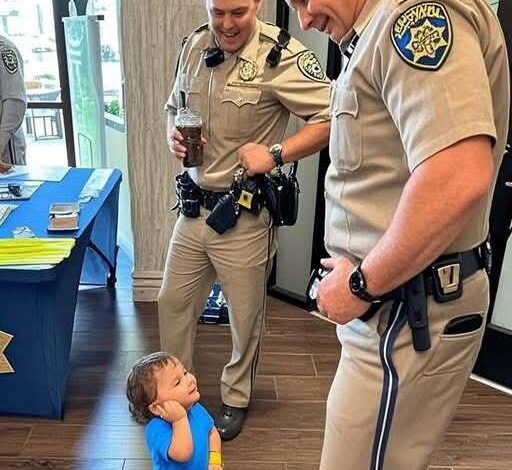How Community Policing Created Life-Changing Mentorship for My Young Son

The Unexpected Beginning of a Meaningful Relationship
During a routine banking visit, my curious 8-year-old son wandered over to chat with two California Highway Patrol officers conducting community outreach. What began as a simple childhood interaction evolved into a transformative mentorship experience that would shape his character development for years to come.
Officer Raynor and Officer Jules were participating in regular community engagement programs at our local bank branch. Instead of dismissing my son’s endless questions about law enforcement procedures, police equipment, and their daily responsibilities, these dedicated public servants took time to engage meaningfully with an inquisitive child.
The Power of Positive Role Models in Child Development
My son’s fascination with these police officers went far beyond typical childhood curiosity. He created artwork depicting their friendship, asked thoughtful questions about community service, and began incorporating their teachings about kindness and protection into his daily interactions at school.
When a playground incident occurred involving bullying behavior, my son demonstrated remarkable emotional intelligence by standing up for another child. He referenced Officer Jules’ guidance about how “real heroes help people rather than hurt them,” showing how adult mentorship can influence positive behavioral choices in young people.
Community Outreach Programs and Their Impact
These weekly visits to the bank became more than routine errands; they transformed into valuable learning experiences about civic responsibility, public service, and character building. The officers treated my son with genuine respect, validating his questions and encouraging his natural leadership qualities.
Their community policing approach demonstrated how law enforcement professionals can build positive relationships with families, creating trust and mutual understanding between police departments and the communities they serve. This type of youth engagement helps children develop healthy perspectives about authority figures and public safety.
When Mentorship Faces Unexpected Challenges
Eventually, both officers received department transfers to different locations, ending our regular weekly meetings. My son experienced disappointment when his mentors were no longer available, but their influence had already created lasting impact on his personal development.
The emotional maturity he displayed during this transition revealed how deeply these relationships had affected his understanding of friendship, loss, and resilience. Rather than becoming discouraged, he maintained his commitment to the positive values these officers had modeled.
Long-Distance Mentorship and Continued Connection
Two months after their departure, we received an unexpected postcard from Officer Raynor, who had kept my son’s artwork and wanted to maintain their connection despite the distance. This gesture demonstrated the genuine care these public servants had developed for a child who had touched their lives as much as they had influenced his.
The handwritten message reinforced their original teachings about kindness, intelligence, and courage, providing continued encouragement during a formative period in my son’s development. This ongoing communication showed how meaningful mentorship relationships can transcend physical distance and job changes.
Lessons About Community Impact and Personal Growth
This experience taught our family valuable lessons about the importance of community connections, positive role models, and the lasting impact of small acts of kindness. These officers didn’t realize they were participating in character-building activities; they were simply doing their jobs with compassion and dedication.
Their approach to community policing created ripple effects that extended far beyond law enforcement duties. By taking time to engage with young people, they contributed to developing future community leaders who understand the importance of service, protection, and moral courage.
The Broader Implications for Youth Development
This story illustrates how adult mentorship can profoundly influence childhood development and future life choices. When community members, whether police officers, teachers, or other professionals, invest time in meaningful relationships with young people, they create lasting positive change.
The emotional intelligence, leadership skills, and moral compass my son developed through this relationship will serve him throughout his life. These officers helped shape his understanding of what it means to serve others and lead with both strength and compassion.
Our experience demonstrates that community policing programs, youth mentorship initiatives, and positive adult relationships are essential investments in developing the next generation of responsible, caring citizens.